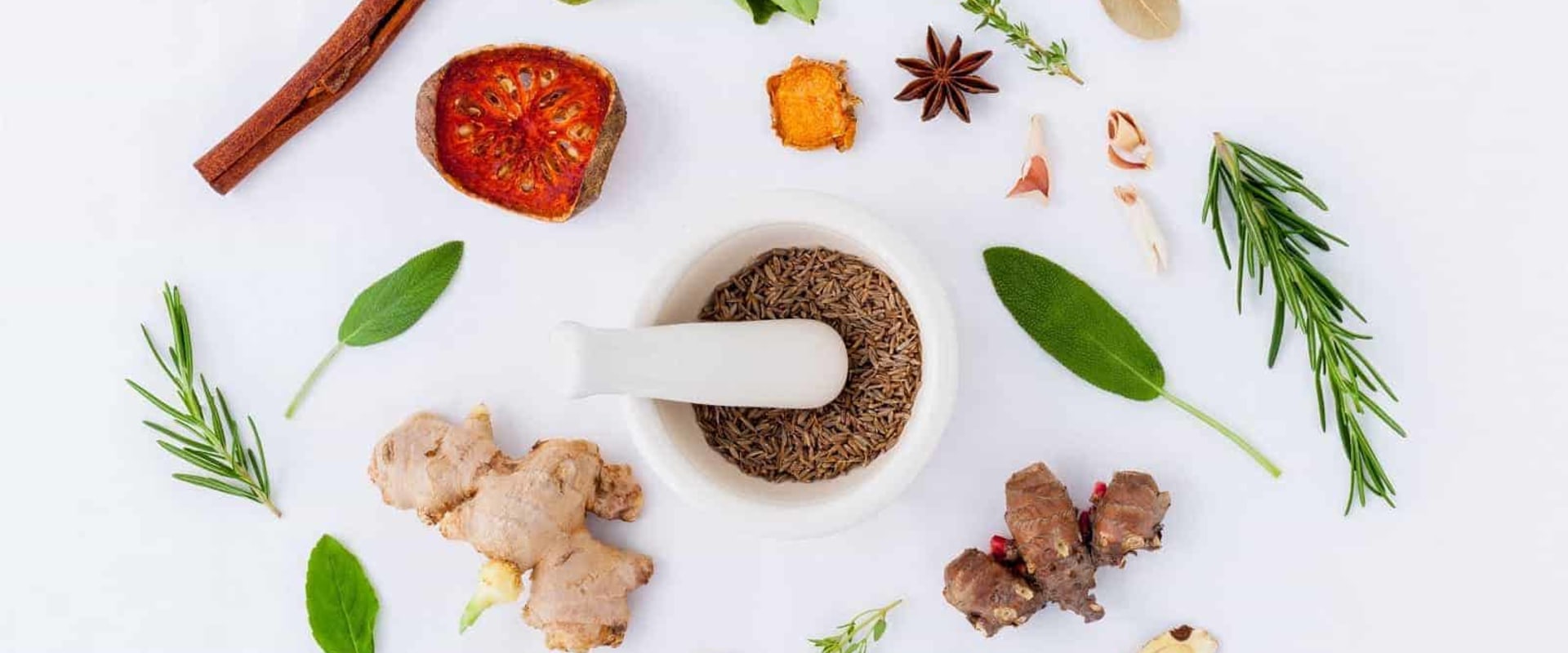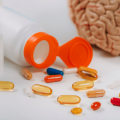Nootropics are cognitive enhancers that can help increase energy, concentration and memory. They are not a cure for everything, and most work better if you have some symptoms of decreased mental clarity. Some natural nootropics include caffeine, ginkgo biloba, creatine, omega-3s and L-theanine. They are all sources of natural nootropics, or cognitive enhancers, that are used for brain health.
While they may be new to many of us, nootropics have been used in both Chinese medicine and Ayurvedic healing for thousands of years. There are a wide range of brain stimulators available, but some come with safety concerns and side effects. That's why it's so important to know what to look for when starting a search for nootropic supplements. The first distinction to be made is between synthetic and natural nootropics.
If the side effects of synthetic nootropics are not enough reason to avoid them, consider the abundance of natural nootropics found in the natural world. Plants and herbs offer a wide range of adaptogenic or stress-relieving compounds that help increase concentration and relaxation. Natural nootropics are much safer than synthetic forms because, in their purest version, they do not produce side effects similar to other neuropsychotropic drugs. Look for high-quality nootropic herbs that are standardized or that include certain trademarks or labels, such as GMP, which denotes good manufacturing practices.
Also look for nootropics without artificial ingredients or common allergens. Safety-conscious manufacturers will clearly define the presence of ingredients and allergens, such as gluten, soy and dairy products. Here's a look at the best natural nootropics and how they support the mind and body. Brahmi, or Bacopa monnieri, is a fundamental herb in Ayurvedic medicine.
It thrives in humid and tropical environments and can survive well underwater. Similar to many other natural nootropics, the plant, its extract and isolated bacosides are known to support mental performance while reducing stress and also have anti-inflammatory properties. Another advantage of supplementing with Bacopa Monnieri is that it contains adaptogens, which fight free radicals and oxidative stress that are linked to many modern lifestyle diseases, including heart disease, diabetes and cancer. Ginseng is one of the oldest and most popular adaptogenic herbs.
Coming from traditional Chinese medicine, it is a long light brown root with green leaves and a bitter taste. The two most popular varieties are American (Panax quinquefolius) and Asian (Panax ginseng), both of which have a positive effect on the immune system. Ginseng May Support Healthy Blood Sugar Levels and Increased Concentration May Help with Menopause, Cancer, Blood Pressure and Heart Disease. Since ginseng is a powerful herb, it has the ability to interact with other medications and may not be a good choice for people taking certain medications, so you should consult with your doctor before taking ginseng as a supplement.
Also known as rose root, arctic root or golden root, rhodiola rosea is a mountain herb that grows in cold climates. It contains more than 140 active ingredients and has antidepressant and anti-fatigue effects, and is also used to treat anxiety in Russia and Scandinavia. To test its antidepressant effects, a study compared rhodiola with the antidepressant drug Zoloft whose active ingredient is sertraline. The findings showed that while the chemical drug had a greater effect on reducing general symptoms of depression, the herb was easier to tolerate because it usually had no side effects.
Exuberant and leafy, ginkgo biloba is one of the oldest living tree species. It is a popular natural nootropic that can have a positive effect on cognitive function, anxiety and stress management. In addition, studies have shown the use of the herb to reduce symptoms of mild cognitive impairment and Alzheimer's disease. Gingko can play an important role in improving blood flow, which can help maintain arterial health and reduce the likelihood of stroke.
Other studies show the positive effects of Gingko on eye health. More research is needed, but preliminary findings suggest that ginkgo biloba supplementation may be beneficial in treating age-related macular degeneration, the leading cause of vision loss. The body only produces a very small amount of choline in the liver; however, it is not enough to meet the needs of humans. Therefore, we must get it from our diet or from a choline supplement.
Choline is often grouped with B vitamins because of its essential role in regulating liver function, metabolism, brain development, and muscle movement. Although choline deficiency is rare, certain groups of people may be more at risk. These include endurance athletes, postmenopausal women, pregnant women, and people who consume large amounts of alcohol. Piracetam is a natural nootropic that, like many others, is used for cognitive enhancement.
It has been discovered that Piracetam can help working memory, intellectual function, learning and concentration. Studies have also shown that Piracetam improves ATP production, but when it comes to treating cognitive impairment, the right dosage is key. A study of older adults showed a significant difference in cognition improvement with a dose of 1,600 mg three times daily. However, there was no difference in cognition with patients receiving 800 mg three times daily.
Increased interest in brain health and productivity has led to a variety of synthetic supplements, but not all of these compounds are of concern. Since many synthetic nootropics can have side effects, natural nootropics are a much healthier and safer alternative. Whether it's improving mental performance, reducing the risk of disease or increasing your resilience against stress, natural nootropics offer a wide range of benefits for general well-being and cognitive fitness. Understanding how to incorporate these supplements into your life can help you better understand and optimize your health.
Simply put, natural nootropics are substances or nutrients that affect mental performance. While they may have become something of a buzzword in the health and fitness industry in recent years, they have been used for thousands of years in both Chinese medicine and Ayurvedic healing. Natural nootropics serve a similar purpose, just like any other nootropic. However, true to their name, they are composed of organic compounds.
Nootropics from herbs, plants, root extracts and fungi are often used in ancient traditions, such as Chinese medicine, to improve mental function. L-theanine is a natural amino acid found in tea, but it can also be taken as a supplement (. Ginkgo biloba has also been shown to help in dementia. In the Anatomical Therapeutic Chemical Classification system, ginkgo is listed as a drug against dementia.
A research study found that ginkgo along with anti-dementia drugs may benefit patients with dementia if taken consistently for a year. However, the results of research studies on the overall effectiveness of ginkgo with these health conditions are mixed. Rhodiola rosea, also known as the “golden root”, is an arctic root that is most widely found in the colder regions of Europe and Asia. The root is most widely used in those regions to treat depression and prevent altitude sickness.
In addition, research has found that rhodiola can relieve mental fatigue in healthy adults. The root is essentially an adaptogen or supplement that provides cells with the ability to balance in response to inflammation. Natural nootropic supplements help you achieve maximum mental potential safely, without the risks of smart synthetic drugs, while making your brain healthier. Surprisingly, in some cases, the amino acids found in supplements work even better than those found naturally in food.
A natural amino acid, L-theanine, is commonly present in green tea, but you can take it as a nootropic supplement. Since they cannot ingest this smart drug through natural means, they will have to take synthetic nootropics instead. The establishment of new natural nootropics should consider the cellular and molecular mechanism of cognitive processes. Nootropics and smart drugs are natural or synthetic substances that can be taken to improve mental performance in healthy people.
Small doses of this natural nootropic every day are sufficient when it comes to stress and fatigue before exams. Nootropics and smart drugs refer to natural, synthetic and prescription substances that improve mental function. The effects of natural nootropics on improving brain function also contribute through the stimulation of the new neuronal cell. Natural nootropics such as Ginkgo biloba have been extensively studied to support the beneficial effects of compounds.
However, there are a number of studies that are positive about its effect on cognitive performance and alertness when it has been stacked with another natural nootropic, caffeine. Natural nootropics also stimulate the release of multiple neurotransmitters, which contribute to stimulating the brain. This demand for productivity has increased sales of natural and synthetic nootropics worldwide. Studies show that nicotine may have nootropic effects, such as improved alertness and attention, especially in people with a naturally impaired attention span (36, 3.An amino acid found naturally in tea, research on the use of L-theanine as a single ingredient tends to promote its relaxing properties).
. .




